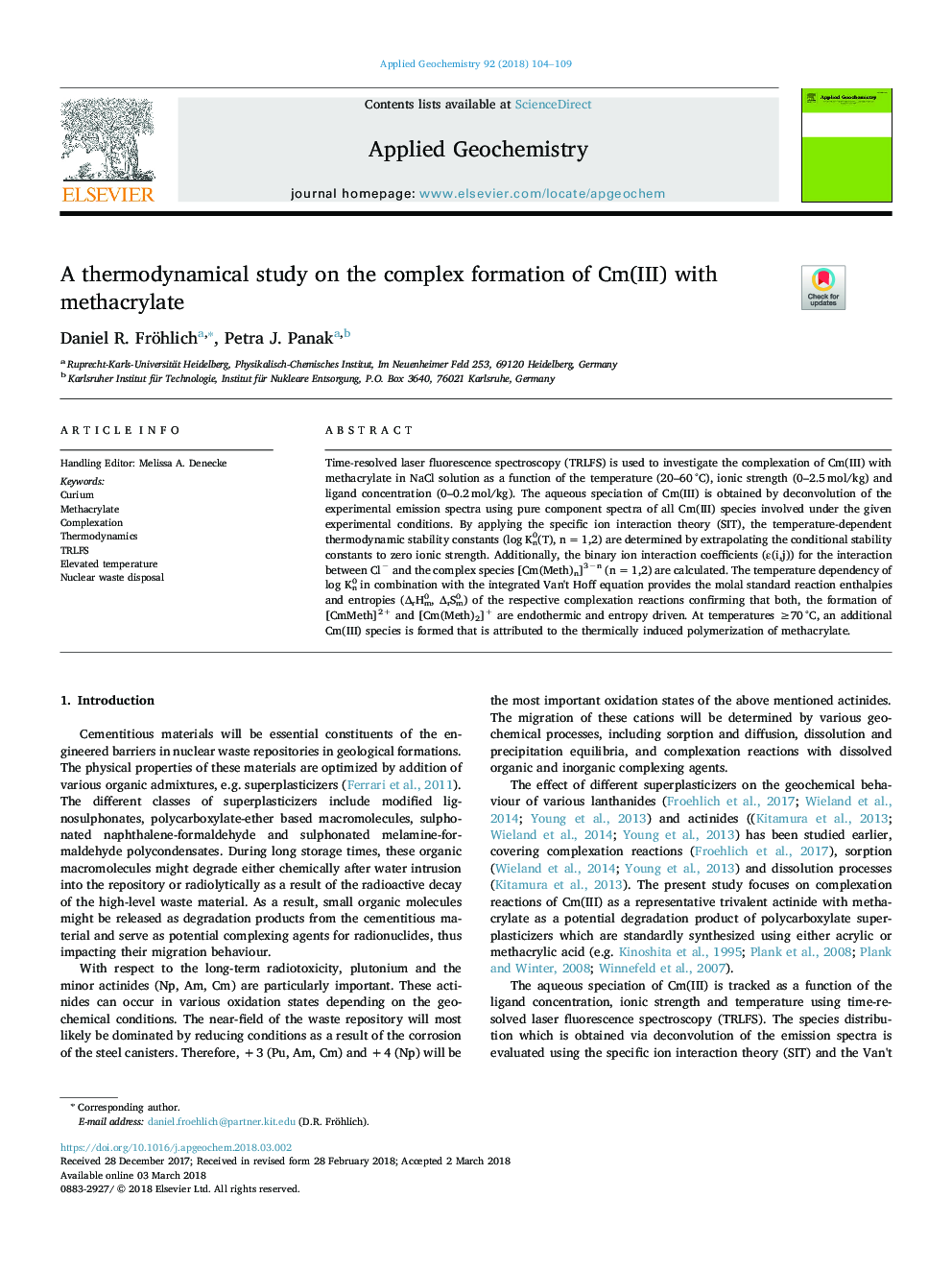| Article ID | Journal | Published Year | Pages | File Type |
|---|---|---|---|---|
| 8863131 | Applied Geochemistry | 2018 | 6 Pages |
Abstract
Time-resolved laser fluorescence spectroscopy (TRLFS) is used to investigate the complexation of Cm(III) with methacrylate in NaCl solution as a function of the temperature (20-60â¯Â°C), ionic strength (0-2.5â¯mol/kg) and ligand concentration (0-0.2â¯mol/kg). The aqueous speciation of Cm(III) is obtained by deconvolution of the experimental emission spectra using pure component spectra of all Cm(III) species involved under the given experimental conditions. By applying the specific ion interaction theory (SIT), the temperature-dependent thermodynamic stability constants (log K0n(T), nâ¯=â¯1,2) are determined by extrapolating the conditional stability constants to zero ionic strength. Additionally, the binary ion interaction coefficients (ε(i,j)) for the interaction between Clâ and the complex species [Cm(Meth)n]3ân (nâ¯=â¯1,2) are calculated. The temperature dependency of log K0n in combination with the integrated Van't Hoff equation provides the molal standard reaction enthalpies and entropies (ÎrH0m, ÎrS0m) of the respective complexation reactions confirming that both, the formation of [CmMeth]2+ and [Cm(Meth)2]+ are endothermic and entropy driven. At temperatures â¥70â¯Â°C, an additional Cm(III) species is formed that is attributed to the thermically induced polymerization of methacrylate.
Keywords
Related Topics
Physical Sciences and Engineering
Earth and Planetary Sciences
Geochemistry and Petrology
Authors
Daniel R. Fröhlich, Petra J. Panak,
